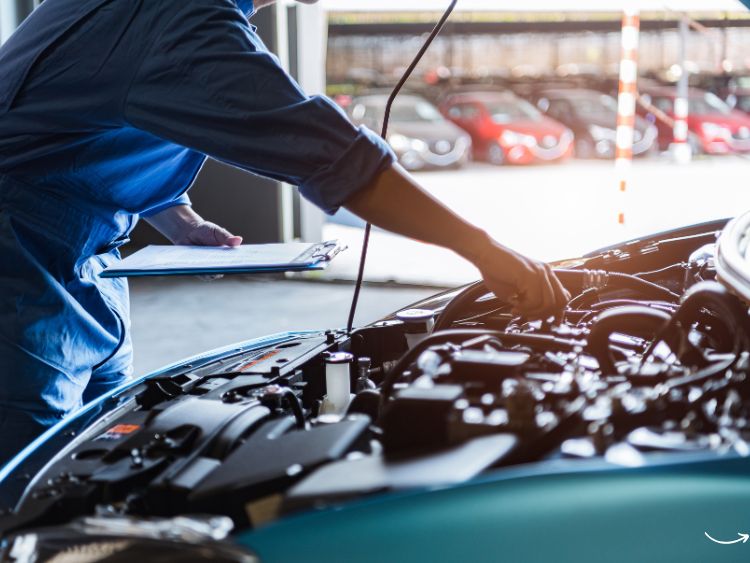Maintaining your vehicle is not just about keeping it clean and shiny; it’s about ensuring its longevity and performance. Regular vehicle maintenance service is essential for the smooth operation of your car, truck, or SUV. Let’s dive into the nitty-gritty of vehicle maintenance service and discover why it’s crucial for every vehicle owner.
Picture this: You’re cruising down the highway, windows down, music blasting, and your car is running like a dream. Sounds perfect, right? But what happens if your vehicle breaks down unexpectedly? That’s where vehicle maintenance service comes into play. It’s the unsung hero that keeps your vehicle running smoothly, preventing costly repairs and ensuring your safety on the road.
The Importance of Regular Vehicle Maintenance Service
Why Is Vehicle Maintenance Important?
Regular vehicle maintenance service isn’t just a suggestion; it’s a necessity. It helps identify potential problems before they become major issues. From oil changes to tire rotations, each service plays a vital role in your vehicle’s health. Ignoring these routine check-ups can lead to breakdowns, expensive repairs, and even accidents.
Benefits of Routine Maintenance
- Improved Safety: Regular maintenance ensures all vehicle systems are functioning correctly, reducing the risk of accidents.
- Cost Savings: Preventive maintenance is cheaper than major repairs caused by neglect.
- Increased Lifespan: Well-maintained vehicles last longer, providing better return on investment.
- Better Fuel Efficiency: Properly maintained vehicles run more efficiently, saving you money at the pump.
Essential Vehicle Maintenance Services
Oil Changes
Oil is the lifeblood of your vehicle. Regular oil changes keep your engine running smoothly by reducing friction and wear. Neglecting oil changes can lead to engine damage and decreased performance.
Tire Rotations and Alignments
Even tire wear is crucial for vehicle safety and performance. Regular tire rotations and alignments ensure your tires wear evenly, providing better handling and extending tire life.
Brake Inspections
Your vehicle’s braking system is essential for safety. Regular brake inspections and maintenance ensure your brakes function correctly, preventing accidents and costly repairs.
Fluid Checks and Replacements
Your vehicle relies on various fluids, including coolant, transmission fluid, and brake fluid. Regular checks and replacements prevent system failures and keep your vehicle running smoothly.
Battery Maintenance
A dead battery can leave you stranded. Regular battery checks and maintenance ensure your battery is in good condition and can start your vehicle reliably.
DIY vs. Professional Maintenance
DIY Maintenance
For the hands-on vehicle owner, some maintenance tasks can be done at home. Simple tasks like checking tire pressure, replacing wiper blades, and topping off fluids can be handled with basic tools and knowledge.
Professional Maintenance
While DIY maintenance is great, some tasks require professional expertise. Professional mechanics have the tools, training, and experience to handle complex repairs and maintenance, ensuring your vehicle stays in top condition.
Seasonal Maintenance Tips
Spring
- Check Tire Pressure: Temperature changes can affect tire pressure. Ensure your tires are properly inflated.
- Inspect Wipers and Lights: Spring showers mean you need functional wipers and lights for safe driving.
- Check Brakes: Winter conditions can be tough on brakes. Have them inspected for wear and tear.
Summer
- Air Conditioning Check: Ensure your AC is working properly to keep you cool during hot summer days.
- Inspect Coolant Levels: Prevent overheating by checking and topping off coolant levels.
- Tire Inspection: Hot pavement can increase tire wear. Inspect tires for damage and ensure they are properly inflated.
Fall
- Battery Test: Cold weather can be tough on batteries. Test your battery to ensure it’s ready for winter.
- Check Heater and Defroster: Ensure your heater and defroster are working properly for cold mornings.
- Inspect Belts and Hoses: Cold weather can cause belts and hoses to crack. Inspect them for wear and replace if necessary.
Winter
- Winter Tires: Consider installing winter tires for better traction on snow and ice.
- Check Antifreeze: Ensure your antifreeze levels are adequate to prevent your engine from freezing.
- Inspect Brakes: Icy roads require reliable brakes. Have them inspected for safety.
FAQs
How often should I get an oil change?
Most vehicles require an oil change every 3,000 to 5,000 miles. However, check your owner’s manual for specific recommendations for your vehicle.
What are the signs that my brakes need servicing?
If you hear squeaking or grinding noises, experience longer stopping distances, or feel a pulsing in the brake pedal, it’s time for a brake inspection.
How can I improve my vehicle’s fuel efficiency?
Regular maintenance, such as keeping tires properly inflated, changing air filters, and using the recommended motor oil, can improve fuel efficiency.
When should I replace my vehicle’s battery?
Most car batteries last 3-5 years. If your battery is older or you notice slow engine cranking, dim headlights, or electrical issues, it may be time for a replacement.
What should I do if my check engine light comes on?
If your check engine light comes on, schedule a diagnostic test with a professional mechanic. It could indicate a range of issues, from minor to severe.
Conclusion
Regular vehicle maintenance service is the key to a long-lasting, reliable vehicle. By staying on top of routine maintenance tasks, you can avoid costly repairs, improve safety, and ensure your vehicle performs at its best. Whether you’re a DIY enthusiast or prefer professional services, maintaining your vehicle is an investment that pays off in the long run.
Authoritative Links
- www.carcare.org
- www.autoblog.com/maintenance
- www.edmunds.com/car-maintenance
- www.consumerreports.org/cro/car-maintenance
- www.nhtsa.gov/maintenance
Taking care of your vehicle doesn’t have to be a daunting task. With the right knowledge and regular maintenance, you can keep your ride running smoothly and enjoy many miles of trouble-free driving.


